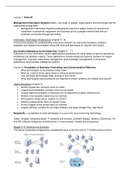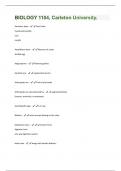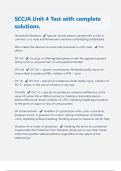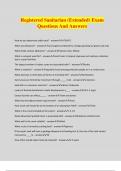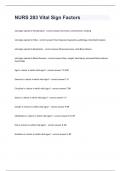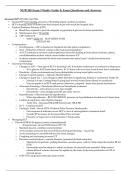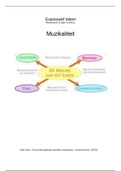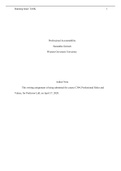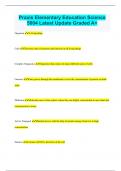Summary
Summary and Lectures Management Information Systems (BUas) - Year 3
- Course
- Institution
Concrete summary and important notes of all lectures on Management Information Systems in year 3. Tip: this document also includes possible exam questions at the end of the document. Good luck! In addition, you would make me very happy by leaving a review after buying one of my documents :)
[Show more]
